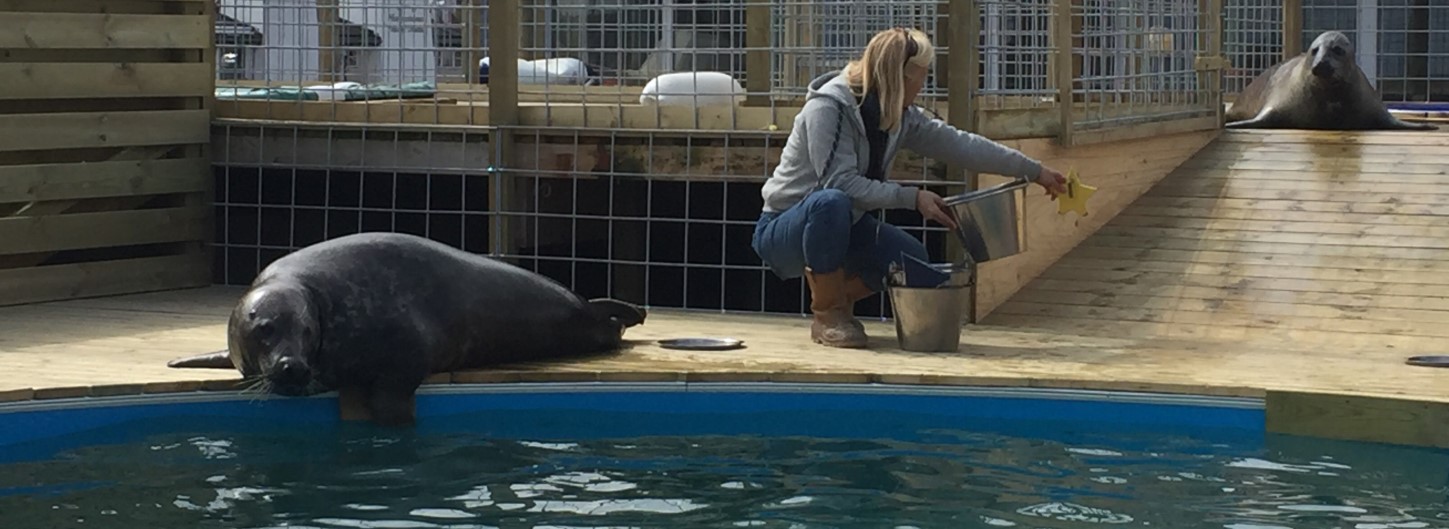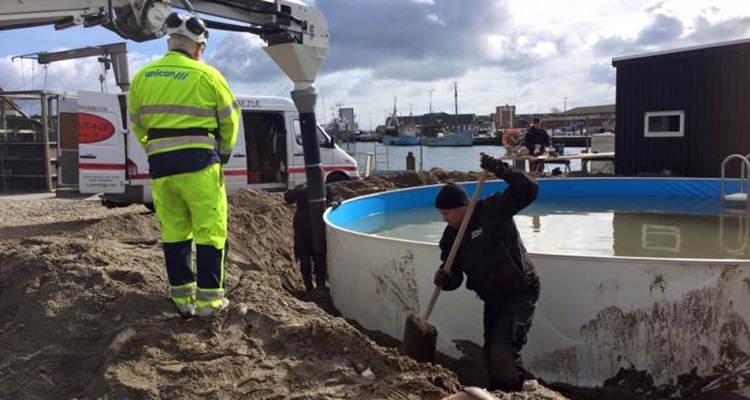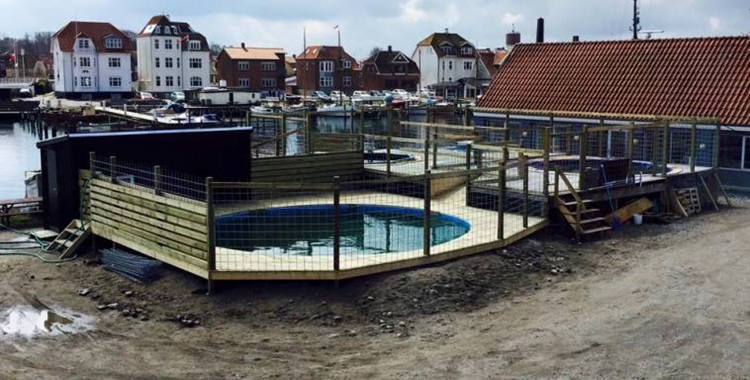
Research seals Oscar and Nino have moved into SDU's new marine research facility
Studying marine mammals in captivity is only possible in a few places in the world. With a new research facility, SDU now positions itself as one of the world's leading institutions conducting marine mammal research.
By Birgitte Svennevig, birs@sdu.dk
The gray seals Oscar and Nino are probably quite unaware that they are some of the most contributing research animals when it comes to studying marine mammal behavior, cognitive function and ability to navigate.
But since research on marine mammals in captivity is only done a few places in the world, it is nevertheless the case, and therefore the two gray seals and the scientists around them deserve the best possible working conditions.
SDU recently opened a new research facility for this purpose at the university’s Marine Biology Research Centre in Kerteminde.

Well-trained seals
- The new state of the art marine animal research facility will bring SDU’s marine biology research center to the forefront in bioacoustics, behavioral and cognitive research by being able to provide a high quality facility with experienced and trained marine animals, says Kirstin Anderson Hansen, PhD student, Department of Biology.
The world’s oceans are populated by many different species of marine mammals - seals, porpoises, sea lions, whales and dolphins - and they are increasingly disturbed by human activities at sea.
Noisy ships, oil rigs, wind mills, fishing or laying cables are examples of activities that may disturb the marine mammals' ability to hear, navigate and communicate with each other underwater.

Safely through trafficked waters
Therefore SDU biologists work on understanding how they orient themselves in the water - and on finding ways to help them safely through noisy and traficked waters.
Oscar and Nino’s new home in Kerteminde consists of four pools, one of which is lowered into the ground for underwater bioacoustics research. Also there is an anechoic chamber with an attached research office for in-air bioacoustics research.
The new facility is funded by the Carlsberg Foundation and the Danish Council for Independent Research.
Contact
PhD Student Kirstin Anderson Hansen, Department of Biology. Tel +45 6056 5090. Email: kirstinhansen@biology.sdu.dk